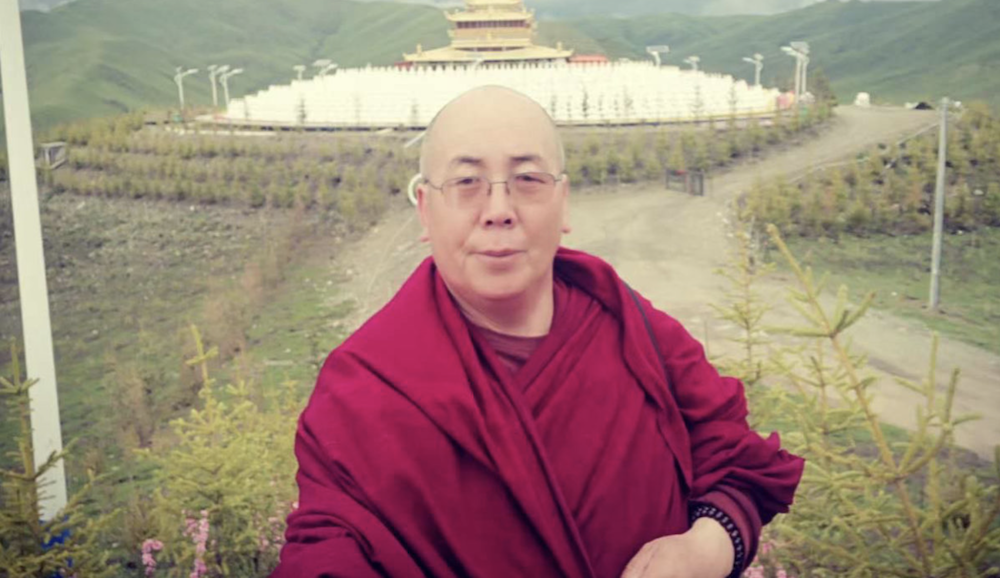Hu Jintao
President of the People’s Republic of China
9 Xihuang-Chenggen Beijie
Beijing
Peoples Republic of China
Beijing, 9th March 2006
Dear Mr. Hu,
Exactly 47 years ago to the day, uncertainty and fear reigned over Lhasa. It had been nine years since troops from the People’s Liberation Army had marched in. Nine years of empty promises, oppression and humiliating brute force.
The first few days of March 1959 were drawing the Tibetan people inexorably closer to their fate. The Dalai Lama, his government and his people had to come to a decision. Should they give themselves up or pay the price of upholding their own freedom?
Half a century later, Tibetans today look back with a justified sense of pride on the fearlessness of those Tibetans in the 10th March 1959 uprising who gave an unmistakeable answer to this question. Their courage along with the Dalai Lama’s determination to shed the burden of Mao’s troops and to take a chance on freedom in exile is a valuable legacy to all future generations that it is the right of every individual to determine the path that they choose to take.
47 years later, I followed the example of these brave men and women and went to Beijing. For those in Lhasa back then, their answer to repression was freedom. Brute force was contrasted with their call for justice. Their answer to violence and degradation was non-violent resistance. To even contemplate emulating their example here in Beijing, a stone’s throw from where the National People’s Congress is being held, is nothing less than anxiety-inducing. And there would certainly have been more sleepless nights had it not been for the generous support of my friends and family.
It became evident that there is another school of thought about these things when the International Olympics Committee awarded the 2008 Games to Beijing. In two years, the eyes of the whole world will look towards Beijing. What kinds of thoughts will be in the minds of the people who throng to Beijing? The Olympic Games should actually be a celebration of friendship, understanding and freedom. A celebration in which the youth of the world, following a set of rules, engage in fair competition.
But how can such a celebration be held in China? Is it not pure cynicism to celebrate with an authoritarian regime that at the same time executes thousands of people every year and arrests and tortures people on the basis of their political beliefs? What should the Tibetan people, who have not been given fair play to for the last 50 years, understand by the phrase ‘understanding amongst nations’?
Sport has another meaning in Tibet’s prisons as in the rest of the world. Tibetan ex-prisoners report that during championships with Chinese participation, it is normal for prison inmates to have to gather in front of the television screen to cheer on the Chinese team. Whoever dares to cheer on another team instead of the Chinese team must deal with serious punishment.
In two years time, the prisons around Lhasa will all be equipped with televisions again. Guards will watch over the prisoners and their behaviour will be under close surveillance. Should one person dare to make a remark, they will be dragged out onto the prison courtyard, presented as a basketball court or football ground to visitors, and will be seen to.
The world will see none of this in 2008. Whilst the international sport and business world are being taken in by Beijing’s huge façade and are applauding the regime for their great implementation of the Games, the people in Tibet face further crackdowns and, deep down, curse the Games.
It is human nature to generally play down the uncomfortable side of reality and therefore to often be taken in by propaganda. The National People’s Congress plays to this human peculiarity on an annual basis. Most observers will be impressed by the amazing statistics and the economic figures. Aside from a few critical words, the National People’s Congress mostly serves as a display of the Party’s achievements and to make boastful announcements full of sound and fury.
Should Tibet be mentioned, we will surely hear about the new railway to Tibet, new roads, factories and the rising gross national product. Whoever believes that even more roads, perhaps a car and a house for the average person is all that it takes to make Tibetans happy is mistaken. There is no substitute for a life lived in freedom and every possible effort should be made to determine one’s own future.
I call on you and your government to critically review your stand on Tibet, make a bold step and change your current Tibet policy. Empty promises and repression will not stop us from continuing our struggle.
Yours sincerely,
Wangpo Tethong









